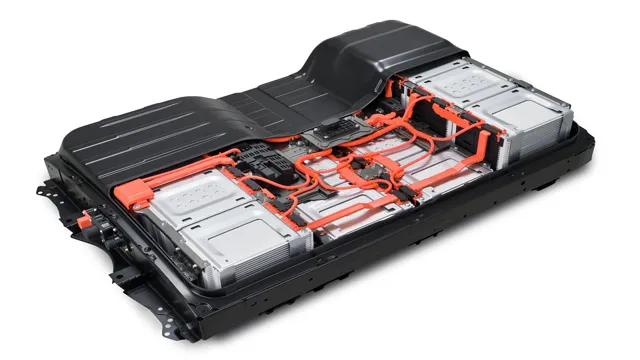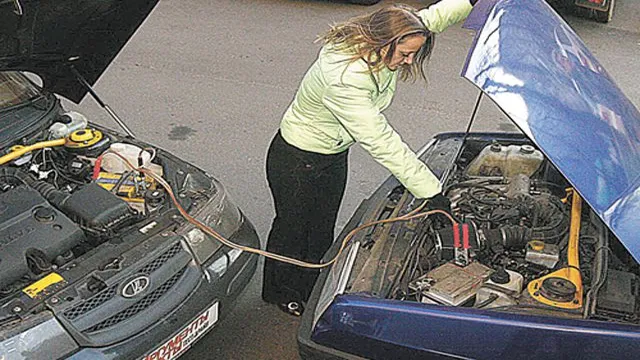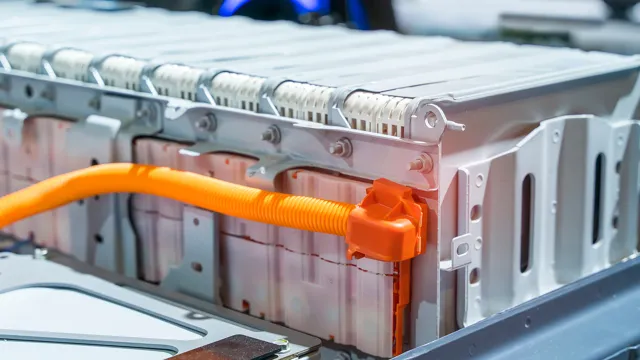Powering the Future: The Rise of Electric Battery Cars in India
As India shifts towards a more eco-friendly future, the electric car industry is booming. With the rise in pollution and climate change, more and more Indian car buyers are considering electric battery cars as a clean and sustainable alternative to traditional gasoline-powered vehicles. While the market for electric cars in India may still be relatively small, the demand for them is on the rise as their benefits become more apparent.
Not only are these cars better for the environment, but they also boast lower maintenance costs and tax incentives. Plus, many brands are now offering affordable pricing options, making them accessible to a wider range of budgets. In this blog post, we’ll dive into the electric car market in India and explore the trend towards cleaner, greener transportation.
Overview of the Electric Car Market
Electric battery cars are becoming increasingly popular in India as consumers are increasingly aware of the benefits of owning an electric vehicle. The Indian government has also implemented policies to encourage the adoption of electric cars, including tax incentives and a reduction in toll fees. The market for electric cars in India is expected to grow rapidly in the coming years as more car manufacturers introduce electric models, and battery technology advances.
Electric battery cars are environmentally friendly, cost-effective, and provide a smooth driving experience. While the initial cost of purchasing an electric car may be higher than traditional petrol or diesel cars, the long-term benefits outweigh the cost. With improved charging infrastructure and advanced battery technology, the electric car market in India is set to grow exponentially in the coming years.
So, it’s time to consider an electric battery car in India for a cleaner and greener future.
Statistics on electric cars in India
India’s electric car market is expanding at a rapid pace and is expected to grow even more in the coming years. According to the Society of Manufacturers of Electric Vehicles (SMEV), the sales of electric cars in India increased by 20% in the fiscal year 2020-21 despite the challenges posed by the COVID-19 pandemic. The adoption of electric cars is being driven by the government’s initiative to reduce pollution and dependence on fossil fuels, as well as the decreasing prices of batteries and the growing charging infrastructure.
However, the share of electric cars in the overall Indian automobile market is still quite small, with less than 1% of total car sales being electric. Companies such as Tata Motors, Mahindra & Mahindra, and MG Motor are leading the way in the electric car segment, with several new models being launched in recent years. It will be interesting to see how the market progresses as the demand for cleaner and more sustainable transportation options continues to rise.

Current state of infrastructure for electric car charging
The current state of infrastructure for electric car charging is rapidly expanding as the demand for electric vehicles (EVs) continues to grow. In recent years, the EV market has seen a surge in popularity, with many consumers choosing to make the switch from traditional gas-powered cars to more efficient and environmentally-friendly options. This shift has led to a surge in charging station installations across the country, making it easier for EV owners to travel longer distances and charge their vehicles on-the-go.
While there is still work to be done in terms of ensuring that charging stations are readily available and accessible nationwide, the progress made thus far has been remarkable. With the support of both government and private entities, the infrastructure for electric car charging is poised to continue expanding, creating a brighter future for eco-conscious drivers and the planet as a whole.
Top Electric Cars Available in India
If you’re looking for a more environmentally-friendly and efficient mode of transportation, an electric battery car in India is the way to go. Luckily, there are a number of options available on the market today. One popular option is the Tata Nexon EV, which boasts a range of up to 312 kilometers on a single charge.
Another great choice is the MG ZS EV, which can travel up to 340 kilometers before needing a charge. The Mahindra e2oPlus is a more compact option perfect for city driving, and can travel up to 140 kilometers on a single charge. Finally, the Hyundai Kona Electric offers a range of up to 452 kilometers, making it perfect for longer trips.
These electric cars not only reduce your carbon footprint, but also offer a smoother, quieter ride and lower maintenance costs than traditional gasoline cars.
Features and pricing of Tata Nexon EV
Tata Nexon EV is one of the top electric cars available in India currently. It is equipped with a powerful lithium-ion battery that can deliver a range of up to 312 km on a single charge. The car comes with a 30.
2 kWh battery pack that can be fully charged in about 8-9 hours using a standard home charging setup. Customers can also opt for DC fast charging which can charge the car up to 80% in just 60 minutes. The Tata Nexon EV is also loaded with advanced features like automatic climate control, touchscreen infotainment system, 8-speaker sound system, rearview camera, and much more.
The car is available in three different trims, with prices ranging from INR 199 lakhs to INR 199 lakhs.
Overall, the Tata Nexon EV is a solid choice for customers who are looking for a high-performance electric car that offers great value for money.
Review of Mahindra eVerito
If you are looking for top electric cars available in India, one that stands out is the Mahindra eVerito. This electric vehicle offers a range of up to 110 km on a single charge, making it perfect for urban commutes. Not only is it environmentally friendly, but it also saves you money on fuel costs.
The eVerito has a spacious interior, comfortably seating five people, and comes with features like automatic climate control and a touchscreen infotainment system. One unique aspect of this EV is that it offers a fast charging option, allowing you to charge it up to 80% in just an hour. Overall, the eVerito is a great option for anyone looking to make the switch to an electric car without sacrificing comfort or convenience.
Performance specifications of MG ZS EV
The MG ZS EV is one of the top electric cars available in India, and it comes packed with impressive performance specifications. The car is powered by a 45 kWh battery pack that delivers a range of up to 419 km on a single charge.
It can go from 0 to 100 km/h in just 5 seconds, making it a fast and powerful electric vehicle. The MG ZS EV comes with a 3-phase permanent magnet synchronous motor that can generate a maximum power output of 143 PS and a maximum torque of 353 Nm.
This means that the car can easily handle any type of terrain and can provide a smooth and comfortable driving experience. With its advanced safety features and cutting-edge technology, the MG ZS EV is a perfect choice for anyone looking to transition to electric vehicles. Whether you’re a city commuter or someone who loves to go on long road trips, the MG ZS EV has everything you need to make your journey comfortable and enjoyable.
So why not give it a try today and experience the future of electric cars?
Government Incentives and Policies for Electric Cars
If you’re considering purchasing an electric battery car in India, you may be wondering about the government incentives and policies in place. The good news is that the Indian government offers several incentives to encourage the adoption of electric vehicles. For starters, there’s the Faster Adoption and Manufacturing of Hybrid and Electric Vehicles (FAME) policy, which provides subsidies on the purchase of electric cars and promotes the establishment of charging stations throughout the country.
Additionally, many states offer additional incentives such as exemptions from road taxes and registration fees. These incentives are part of a larger effort in India to reduce air pollution and improve the country’s overall energy security. As an added bonus, owning an electric car can also save you money on fuel costs and maintenance in the long run.
So if you’re looking to make the switch to a more sustainable form of transportation, an electric battery car in India could be a smart choice.
Overview of government incentives
Electric cars have been gaining popularity due to their eco-friendliness and cost-effectiveness. As a result, governments worldwide are introducing incentives and policies to promote the use of electric vehicles. Countries like France and the UK are phasing out petrol and diesel vehicles, while Norway has already achieved the highest electric car market share globally.
Governments offer incentives like tax credits, subsidies, and rebates to make electric vehicles more affordable for the common public. Moreover, some countries offer charging station infrastructure, special driving lanes, and parking privileges exclusively for electric vehicles. Another significant incentive is reducing or eliminating road taxes for electric vehicles.
Governments aim to reduce greenhouse gas emissions, promote sustainable transport, and make electric vehicles a more feasible option for the masses. Electric car adoption is on the rise due to these incentives and policies, and it is expected to increase as more countries continue to introduce such measures.
Analysis of FAME II scheme
The FAME II scheme introduced by the government has set out several incentives and policies for promoting the use of electric cars in India. Under this scheme, the government is offering subsidies on the purchase of electric vehicles, which can range from INR 10,000 to INR 5 lakhs, depending on the type of vehicle.
Additionally, the government is offering interest-free loans and tax benefits for electric car buyers. The government has also set up several charging stations across the country and is working towards increasing the number of these stations. However, despite these incentives, the adoption of electric cars in India has been slow due to various factors such as the high cost of electric cars, lack of adequate infrastructure, and low awareness among consumers.
The government needs to work on addressing these challenges and formulate more effective policies to encourage people to switch to electric cars.
Should I Purchase an Electric Car in India?
Thinking about purchasing an electric battery car in India? It’s certainly a smart choice! India is making a big push to transition towards cleaner and more sustainable modes of transportation. Plus, electric cars are much cheaper to operate and maintain compared to traditional fuel-run vehicles. While the initial cost of purchasing an electric battery car in India might be higher than traditional cars, the long-term benefits make it a worthwhile investment.
Not only do electric cars have lower maintenance requirements, but they also produce zero emissions, making them a much greener option. Electric cars are also becoming increasingly popular in India, with more charging stations popping up all over the country. So why not join the growing number of eco-conscious drivers and make the switch to an electric battery car in India?
Pros and Cons of electric cars in India
Electric Cars in India Electric cars in India have both pros and cons that need to be considered before making a purchase decision. On the positive side, electric cars are eco-friendly and help reduce carbon emissions, which contribute to air pollution. They are also cheaper to run than conventional cars, as electricity is far less expensive than petrol or diesel.
Additionally, the government promotes the adoption of electric cars by providing several incentives, including a lower GST rate and tax rebates. However, there are also downsides to electric cars. Firstly, the upfront cost of purchasing an electric car is higher than that of a conventional car.
The relatively scarce charging infrastructure in India is another concern. Although there has been a rise in the number of charging stations, it is still not enough for long-distance travel. The limited range of electric cars is also an issue.
Also, low maintenance costs for electric cars lead to higher maintenance costs. To sum up, if you are a city driver who does not travel long distances often, purchasing an electric car in India can be a sound investment. However, if you travel long distances or live in an area where charging infrastructure is scarce, investing in an electric car may not be a wise option.
Ultimately, it depends on your driving patterns, needs, and budget.
Conclusion
In conclusion, the emergence of electric battery cars in India is nothing short of an electrifying revolution. These eco-friendly vehicles are not only reducing carbon emissions but also providing a viable alternative to traditional gasoline-powered cars. With major automakers investing in the Indian market and the government pushing for electric mobility, it’s only a matter of time before the streets are buzzing with battery-powered cars.
So, jump on board and join the charge towards a sustainable future!”
FAQs
What is an electric battery car?
An electric battery car is a vehicle that uses electricity stored in rechargeable batteries to power an electric motor and move the car.
How does an electric battery car work?
An electric battery car works by using energy stored in its battery packs to send power to an electric motor attached to the car’s wheels, which then moves the car forward.
What are the benefits of using an electric battery car in India?
Using an electric battery car in India is beneficial because it produces zero emissions, reduces dependence on fossil fuels, and can save on fuel costs over time.
How does the cost of an electric battery car compare to a traditional gas-powered car in India?
The initial cost of an electric battery car may be higher than that of a traditional gas-powered car in India, but the cost of operation and maintenance can be significantly lower, resulting in long-term savings.




